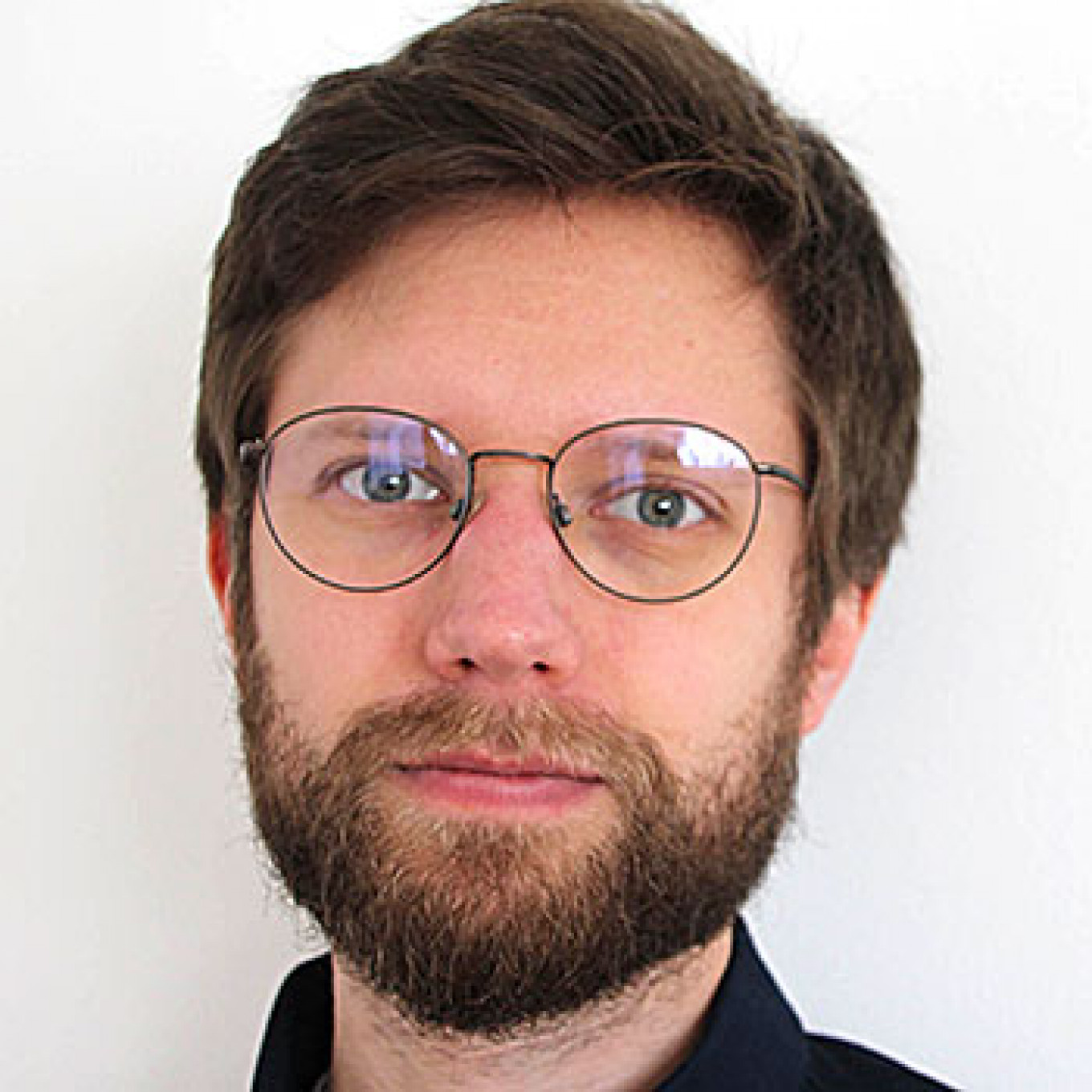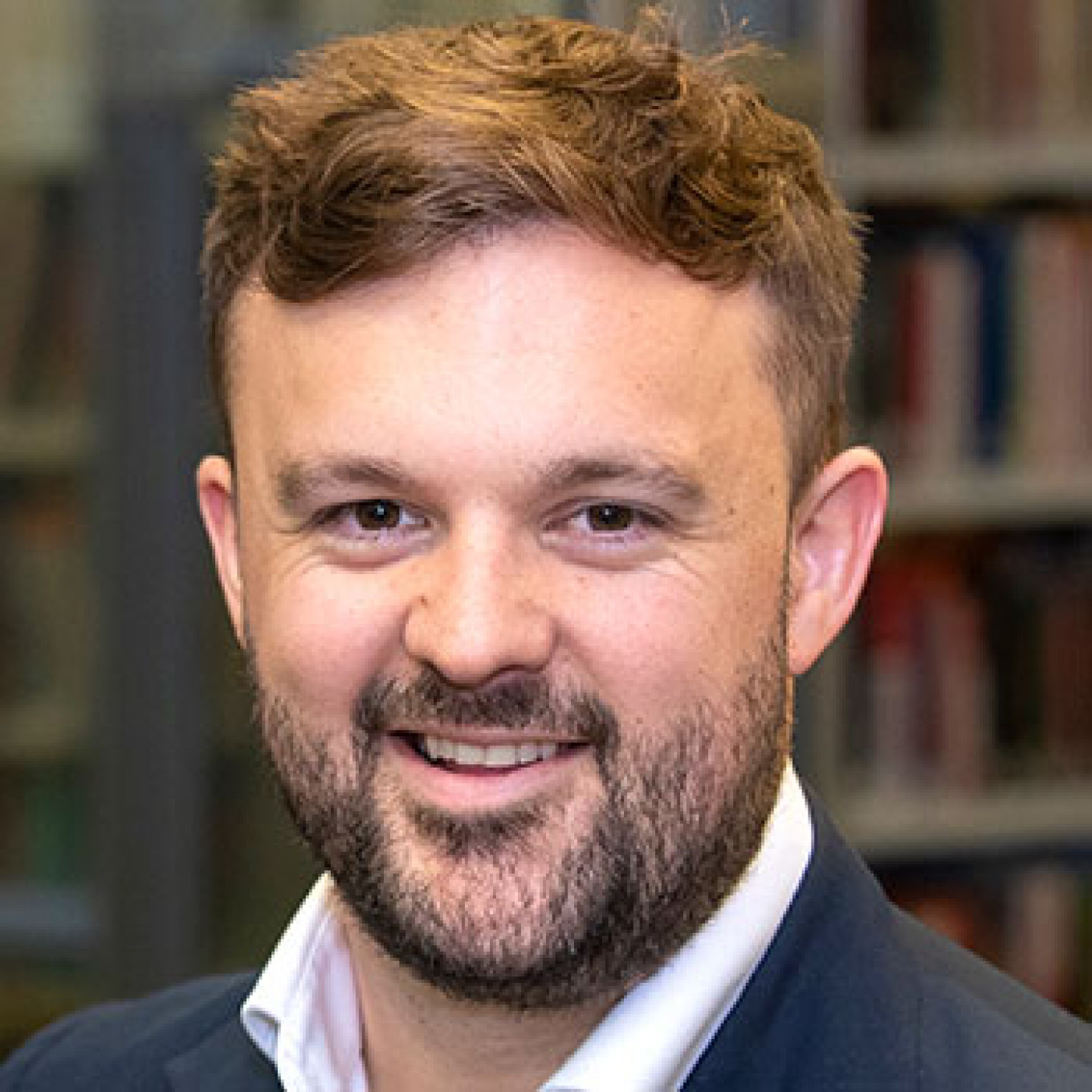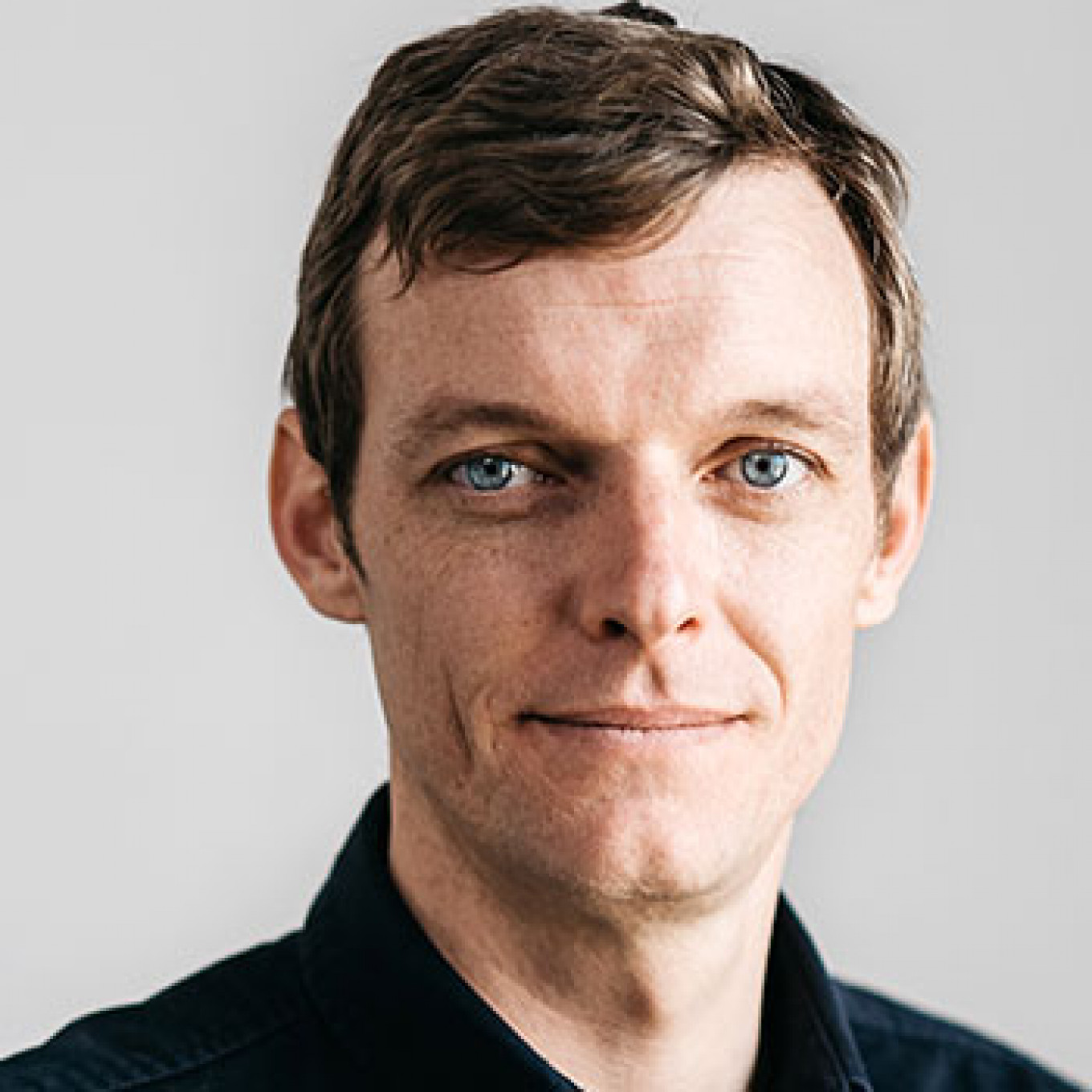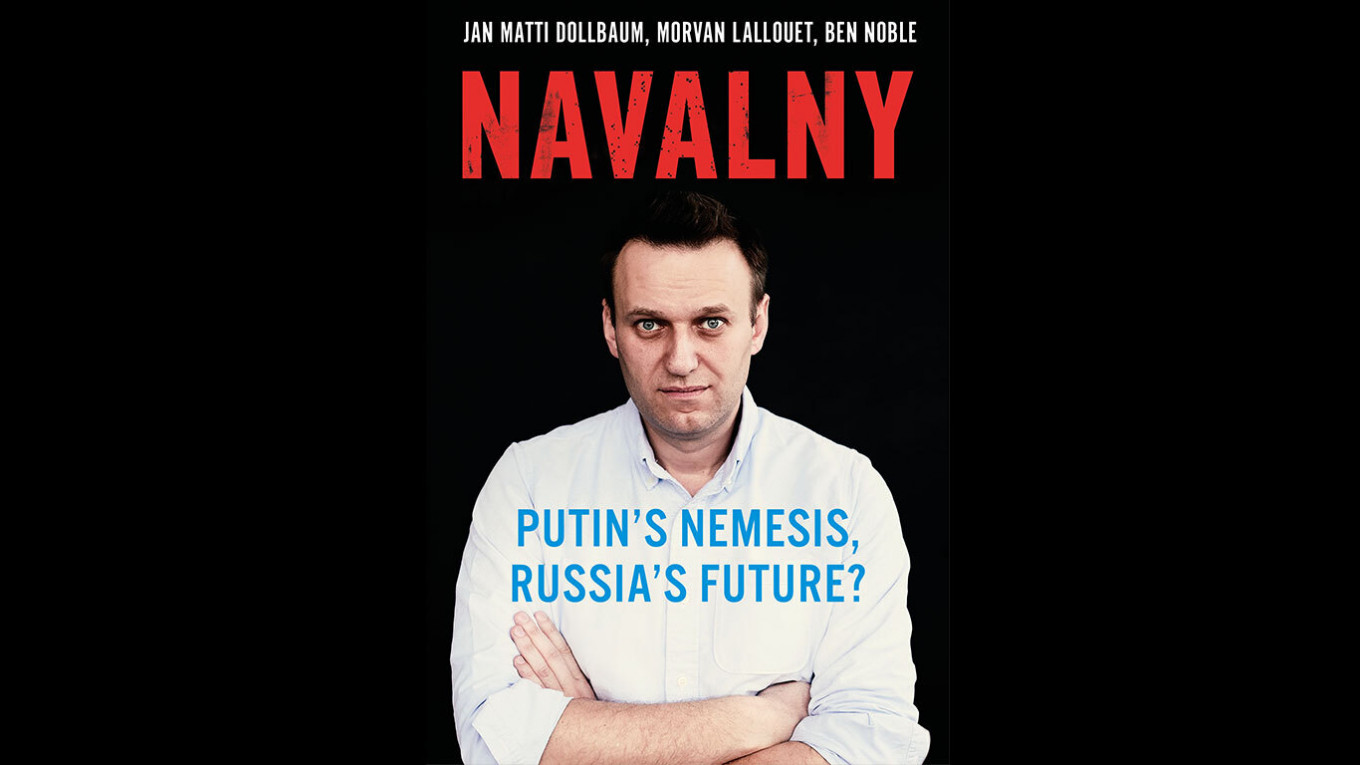Alexei Navalny is a complex and contradictory figure. A Russian opposition leader banned from the ballot for almost a decade; a muckraking exposer of corruption in a country without a free press; a protest leader whose popular appeal remains limited. A new book seeks to demystify Russia’s most famous modern dissident, delving into the life and career of Navalny and the movement that he built.
“Navalny: Putin’s Nemesis, Russia’s Future?” hardly needs to justify itself. Even as Navalny’s decade-long dual with the Russian state entered its most dramatic phase in January and February this year — with Navalny returning to Russia after having survived a suspected Novichok poisoning and unmasking one of his would-be assassins via prank call from German exile — there was no English-language book on the opposition leader’s career. This book arrives to fill the gap, written by three authors who are all academics with a focus on Russian politics.

The three authors — Ben Noble of UCL, the University of Kent’s Morvan Lallouet and Jan Matti Dollbaum of the University of Bremen — have not written a biography in the conventional sense. Instead, Navalny the man is chopped into three roughly even-sized, chapter-length components, each with a distinct set of roots stretching back into the opposition leader’s formative years.
First is the anti-corruption activist who makes his name by buying up shares and dredging up graft in big public corporations before graduating on to blockbuster exposes of the lifestyles of oligarchs, prime ministers and — ultimately — President Vladimir Putin himself.
Next comes the politician, a youthful shock therapist whose disillusionment with the unevenly shared fruits of economic reform see him drift from center-left liberalism to hard-right nationalism, before alighting on a catch-all populism that sees him banned from electoral politics after coming close to upsetting the Kremlin’s candidate for Moscow mayor in 2013.
Last we have the protestor, the charismatic rabblerouser at the forefront of the 2011-12 protests against election rigging, who leveraged that experience into creating a genuinely nationwide opposition movement. The protests over Navalny’s imprisonment in the spring of this year were the largest in geographical reach in more than a century.
This series of winding tours through Navalny’s life and times does a fine job of presenting an account of the various different contexts that have shaped Navalny’s political trajectory.
In their title, the authors set out to answer the question of whether Navalny might be Russia's future. As it happens, events this year have provided an even more definitive answer than that provided in the book. Few could have anticipated how ruthlessly — and how successfully — the Kremlin has smashed, criminalized and sidelined Navalny and his movement. Half a year since his return home, it is harder than ever to imagine that the man in the IK-2 penal colony might yet be Russia’s future.
Excerpt from Chapter Two of “Navalny: Putin’s Nemesis, Russia’s Future?”: The Anti-Corruption Activist
A drone with a camera flies above the Black Sea, edging closer to the shore. In front, tree-covered coast—and an enormous building. At 17,691 square metres, it is the ‘largest private residential building in Russia’, set in land equivalent to ‘39 principalities of Monaco’.
An underground ice hockey rink. An arboretum. Helipads. An ‘aqua-disco’. Vineyards. A private casino. An amphitheatre. A secret tunnel to the beach. Is it a Bond villain’s lair?
No. This is ‘Putin’s Palace’—according to an investigation by Navalny’s ‘Anti-Corruption Foundation’ (FBK). It is the ‘most secret and guarded facility in Russia, without exaggeration. This is not a country house, not a dacha, not a residence—this is a whole city, or, rather, a kingdom.’
Published on YouTube on 19 January 2021, the feature-length investigative film is an instant hit. By 28 January, it has racked up a staggering 100 million views. By the beginning of February, more than one quarter of the entire adult population of Russia has seen it.
The video catalogues the mind-boggling luxury of the palace and its surrounding grounds. It also presents a complex web of financial relationships meant, the FBK claims, to conceal the ultimate beneficiary of it all—the president of Russia himself. This is, Navalny and his team argue, the ‘world’s largest bribe’.
One detail included in Navalny’s investigation—of a single Italian toilet brush worth €700—becomes a symbol of subsequent protests. According to Navalny’s team, however, the brush wasn’t even meant for the palace itself: it was bought for a vineyard nearby—separate from, but part of, the main estate.
Vladimir Putin dismissed the accusations: ‘Nothing that has been shown as my property … has ever belonged to me or my close relatives. Ever.’ The Russian billionaire Arkady Rotenberg told the press that he was the actual owner of the property—it was, he said, ‘a real find in a gorgeous place’. And he planned to turn it into a hotel—it ‘has quite a lot of rooms’.
‘Putin’s Palace’ is by far the most well known of the FBK’s investigations. But Navalny’s anti-corruption work goes back along way. In fact, Navalny first achieved national and international recognition for his anti-corruption activism.
We tell this story—the story of how Navalny turned from a small-time blogger and minority shareholder activist into one of the most famous anti-corruption crusaders in the world. We introduce some of the key characters who have joined him along the way—and chart the many difficulties they faced, from harassment by law enforcement officials to physical attacks by unidentified thugs. And we discuss the accusations made against Navalny himself—including that he is a paid proxy for corporate interests or somebody selfishly seeking a cause to help launch his political career.

‘Who owns Surgutneftegaz?’
Surgut—a city in western Siberia, three hours by plane northeast of Moscow. It’s 30 April 2008—and the annual shareholders’ meeting of the oil company Surgutneftegaz is taking place. The business daily Vedomosti refers to it as ‘one of the most closed oil companies in the country’. Around 350 people are present.
Once CEO Vladimir Bogdanov has finished reporting on the company’s results from the past year, he asks if there are any questions from the audience. One figure takes to the stage. It is Alexei Navalny.
‘Who owns Surgutneftegaz?’
The company’s management are stunned. They’re not used to facing such a probing question in public—something that confronts directly the lack of transparency in the company’s ownership structure.
Navalny asks two more questions. Why is the company’s dividend yield so low? And why is it so difficult to access information, including the company’s annual report, which can only be read before the meeting in remote Surgut itself?
There is an awkward silence. Then, out of nowhere, applause. An isolated group of shareholders in the back of the hall show their support for Navalny’s critical questioning.
This is Navalny as a minority shareholder activist—something he begins in 2007. By buying shares in Russian companies, some of which are majority state-owned, Navalny gets at least two things: access to information on these companies’ activities and opportunities to ask awkward questions, such as in Surgut. He can also use the information to take companies to court, either with a view to getting more information or trying to hold them directly accountable. His education in law and financial markets helps him navigate this world.
But the next step is no less important: Navalny makes the information public on his LiveJournal blog—a vital platform. ‘My blog exists only because there is censorship in the media’, he told a magazine in 2011. He starts the blog in March 2006 simply to post the transcripts of a weekly show he hosts on the radio station Ekho Moskvy (‘Echo of Moscow’). Over time, however, it becomes something much more.
Blogs work
The blog allows Navalny to spread awareness of issues not readily covered in the Russian media, including his shareholder activism. As an early form of social media, the blog also allows him to build a community—of those interested in uncovering shady corporate activities, but also of those willing to help:
Basically, blogs work. A blog is your own media, only interactive. If I write ‘Guys, I need to find a specialist in the field of building design to analyse some corrupt thing that is happening in construction’, I’ll find such specialists through the blog. If needed, I can call on everybody through the blog to write appeals to the [Federal]Anti-Monopoly Service and thousands will write. A blog is a universal tool … Online and offline are united through a blog.

In one of Navalny’s campaigns against the energy giant Gazprom, he claimed that more than 500 people were involved in the investigation.13 And, in another example of community building, Navalny set up the ‘Union of Minority Shareholders’ to pool know-how and coordinate activities.
His blog posts make a splash. And it’s possible to track their growing impact over time. An August 2008 post gets 235 comments. A December 2008 post gets 832 comments. A November 2009 blog entry receives 1,394 comments. But a November 2010 post blows all of these out of the water, receiving 8,965 comments. Yes, this is a crude measure. But the basic metric shows Navalny’s growing visibility and impact over time: by the end of 2011, his blog was being read by 55,000 people daily.
Navalny picked cases that he knew would anger readers—and it worked: ‘The topic should resonate. When I wrote on my blog [in 2008] about the lawsuit against [the Russian oil pipeline monopoly] Transneft—which did not disclose for which charitable purposes it directed half a billion dollars over two years—there were hundreds of responses. It upsets people.’
In a separate 2010 investigation into Transneft, Navalny claimed that no less than US$4 billion was stolen during construction of the Eastern Siberia–Pacific Ocean pipeline—a vital piece of infrastructure for the export of Russian oil to Asia-Pacific markets. The source of Navalny’s information? Leaked documents from a 2008 audit carried out by the Audit Chamber—a state body tasked with monitoring the use of budget funds and public resources. Transneft itself dismissed the investigation as part of a campaign against the investment project.
Navalny’s claims caused such a stir that Vladimir Putin—then prime minister—commented publicly, calling for the Procuracy—the Russian public prosecution body—to investigate. This never happened, however. And, by September 2011, Putin’s tune had changed markedly: he suggested that Transneft management did not steal funds, but, rather, used them for a different purpose than originally intended.
Nevertheless, in February 2011, a Moscow court did order Transneft to release more information relating to the case—to the protestations of the company’s management. Navalny reacted to the decision almost immediately on his blog: ‘yabadabadoo!’—a ‘big victory’.
Overall, however, Navalny’s attempts to hold companies and individuals accountable through the courts were rarely successful. But he took that with a shrug: ‘We’re realists, and perfectly well understand it’s unlikely that in today’s Russia we’ll win in court’ against the highest authorities.
Excerpted from “Navalny: Putin’s Nemesis, Russia’s Future?” by Jan Matti Dollbaum, Morvan Lallouet, Ben Noble and published by C. Hurst & Co. (Publishers) Ltd. © Jan Matti Dollbaum, Morvan Lallouet, Ben Noble, 2021. Used by permission. All rights reserved. Footnotes have been removed to ease reading.
For more information about the authors and book, see the publisher’s site here and follow them on Twitter: @Ben_H_Noble, @JanMattiD and @m_lallouet.
A Message from The Moscow Times:
Dear readers,
We are facing unprecedented challenges. Russia's Prosecutor General's Office has designated The Moscow Times as an "undesirable" organization, criminalizing our work and putting our staff at risk of prosecution. This follows our earlier unjust labeling as a "foreign agent."
These actions are direct attempts to silence independent journalism in Russia. The authorities claim our work "discredits the decisions of the Russian leadership." We see things differently: we strive to provide accurate, unbiased reporting on Russia.
We, the journalists of The Moscow Times, refuse to be silenced. But to continue our work, we need your help.
Your support, no matter how small, makes a world of difference. If you can, please support us monthly starting from just $2. It's quick to set up, and every contribution makes a significant impact.
By supporting The Moscow Times, you're defending open, independent journalism in the face of repression. Thank you for standing with us.
Remind me later.







